Written by Dr. Legisan Samtafsir M.Ag, Founder Gerakan Indonesia Mabrur.
At first glance, connecting Hajj, a spiritual pilgrimage, with Indonesia’s national transformation and its “Golden Indonesia 2045” vision may seem implausible. But in reality, Hajj represents a wide and untapped opportunity for the Indonesian government and its people to drive progress economically, socially, and spiritually.
Hajj is a multidimensional event. For pilgrims, it fulfills a core pillar of Islam, a deeply personal act of worship. Yet from an industrial and economic perspective, Hajj is a massive international enterprise. It involves aviation, hospitality, food and beverage, livestock, agriculture, textiles, transportation, and education which creating jobs and stimulating economic growth across sectors. Hajj is, in many ways, a reflection of civilization itself, an ongoing, global-scale phenomenon that will sustain until the end of time.
Indonesia’s Strategic Role in the Hajj Economy
Also Read: Hassan al-Turabi: A Controversial Thinker from Sudan
Indonesia plays a major role in this global pilgrimage. With over 220,000 pilgrims annually, the largest national quota in the world plus 17,000 in the premium category (ONH Plus), the country’s participation is massive. An estimated six million more Indonesians are in line to perform Hajj in the coming years. If each pilgrim spends an average of IDR 100 million, that amounts to IDR 22 trillion. Adding Umrah pilgrims, around 2 million annually at IDR 30 million per person, the figure rises to over IDR 80 trillion a year.
This enormous circulation of funds shows that Hajj and Umrah are not just spiritual journeys, but also major economic drivers. Indonesia must move beyond seeing Hajj solely as religious fulfillment and begin recognizing it as a powerful industry. It is not just spending, it is investment.
Unlocking Domestic Industry Potential
The next question is: how much of this massive economic activity actually benefits Indonesia’s domestic industries?
Also Read: Who Exactly is the RSF Group Shaking Sudan?
How many Indonesian livestock are exported for Qurban in Saudi Arabia? How much of the Ihram fabric, prayer mats, food, fruits, and vegetables are sourced from Indonesian producers? How many Indonesian airline tickets are booked? How many suitcases, hotel rooms, bus drivers, and catering services involve local businesses?
As a sovereign nation, Indonesia should ensure that its participation in Hajj brings measurable benefits to its economy. The government, in collaboration with state-owned enterprises and private sectors, must build strategic bargaining power to secure greater value from this annual religious event.
A well-coordinated approach could lead to job creation, revitalization of agriculture and livestock sectors, expansion of the textile industry, improved logistics, and better nutrition through Qurban meat distribution. The potential spillover effects are massive.
Hajj as a Platform for Human Capital Development
Also Read: The Two-State Solution (Palestine–Israel) in Historical Perspective
Hajj should also serve as a national platform to enhance human capital. Spiritual strength is a cornerstone of strong character, discipline, and ethical conduct, traits essential for professional and national development.
By deeply internalizing the values of Hajj, pilgrims can return with a renewed belief system, one that strengthens personal responsibility, civic engagement, and professional integrity. This transformation does not require government funding, as the pilgrimage is self-financed. The government’s role is to facilitate the journey while guiding pilgrims toward deeper reflection and post-Hajj contribution to society.
Religious knowledge and compliance with Islamic jurisprudence (fiqh) remain essential. Yet equally important is the transformation of pilgrims into agents of change, individuals who, upon returning, improve family life, serve their communities, and contribute to national development. This is how Hajj becomes an investment in Indonesia’s human capital.
Toward a Nationwide Transformation Movement
Also Read: Enchanted by K-Dramas, Dragged into Slander: Time for Muslims to Rise!
Viewed through this lens, Hajj and Umrah are more than rituals. They are national movements, both economic and social. They offer the momentum for Indonesia to develop a disciplined, spiritually grounded, and professionally capable society who is ready to meet the goals of 2045.
This perspective is echoed by Indonesia’s Minister of Religious Affairs, Prof. Dr. Nasaruddin Umar. In his speech at the 2025 National Coordination Meeting on Hajj Implementation, he emphasized that the government will serve pilgrims with full commitment which is free of political interests, with a focus on innovation, accessibility, and inclusiveness. He also stressed that a successful Hajj is reflected in post-pilgrimage contributions to national progress.
This is a promising shift: Hajj is no longer seen purely as a spiritual obligation but also as a driver of national development. Indeed, all acts of worship in Islam carry this dual function, nurturing both the soul and society.
Realizing this vision requires a collective effort. It cannot rely solely on government programs. It must become a shared movement, driven by all sectors of society, from Sabang to Merauke.
Also Read: Creating Opportunity and Avoiding Misery; Lesson Learn on Waste Recycling Issue
Only then can the journey toward Indonesia’s Golden Vision 2045 become a true people-powered transformation.[]
Mi’raj News Agency (MINA)
Also Read: Between the Treaty of Hudaybiyyah and Ceasefire in Gaza









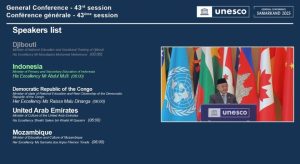
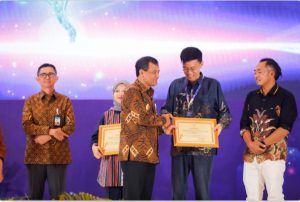
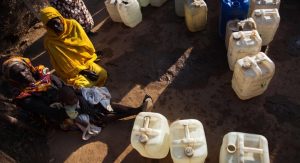



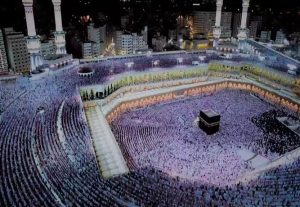





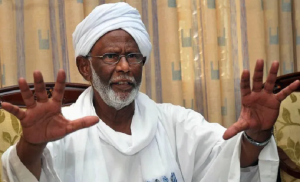







 Mina Indonesia
Mina Indonesia Mina Arabic
Mina Arabic